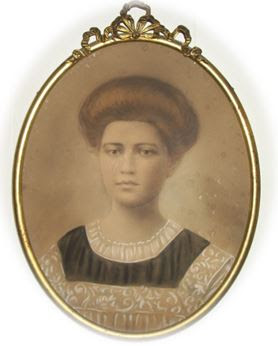52
Ancestors in 52 Weeks
Week 11 (two for me)
Week 11 (two for me)
‘Lucky’
While I prefer ‘blessed’ to ‘lucky’, I
understand the application of lucky in the everyday manner. In that light, my
Uncle Bob comes to mind.
When the Spanish-American War ended, Spain
ceded the colony of the Philippines to the United States in the Treaty of
Paris. That was followed by a period of turmoil as the Philippines sought and
won their independence. At the time my uncle was stationed there in WWII, the Philippines had become an
important ally.
During those tumultuous times with the
Philippines and the U.S., William Hall Barnett and Arabelle Nancy Covert
Barnett welcomed the birth of their second son, Robert Earl on July 18, 1913. Sad to say Uncle Bob had a twin sibling who
died at birth. The births took place in
the city of Butler, Pennsylvania and were in all likelihood, home births as
were their brothers and sisters. Their father, William was in the grocery
business with his step-brother at 370 Center Ave. in a section of the city
called Springdale. Mother, Arabelle, would have been nearby at their residence
along with their first son, William
In two years, Bill and Bob were joined by
another brother, James followed in 1918 by the birth of another set of twins,
Ralph and Ruth. With a rapidly growing family, Will and Belle made the decision
to move out of the city. In 1918 they were renting a two-story farm house in
Connoquenessing and in 1920 they began a small truck farm of primarily berries
on property about a half mile away. The access to this property was located up
a long lane that was subject to drifting snow and spring flooding.
Knowing the Barnetts as neighbors and being
aware of the condition of the lane, a little Pennsylvania Dutch Farmer neighbor
with a big heart offered them an acre of land at the bottom of the lane. The
young family was soon settled into their new home and over time added a barn,
chicken coop and shed to the homestead; along with a cow, chickens and a mule
or two. Transportation was by wagon and Uncle Bob and his siblings remembered
their mother coming home from town in the wagon after a day of selling or
trading the berries they had harvested.
Family stories reveal a lively bunch and insight into Uncle Bob’s personality. As the tale goes Grandpa Will was heard to say at the supper table “Bob must you be so ornery?”.
As he grew into his teens along came motor
vehicles and a lifelong passion for mechanics. Once again, there are many
family stories about trucks, cars and escapades.
Then came along WWII and young American men
being sent around the world. For Uncle Bob this was service with the Army Air
Corps and to no surprise, the motor pool, while stationed in the Philippines.
It was on the voyage across the Pacific that ‘lucky’ came into play in the form of
surviving a kamikaze attack on the troop ship.
Uncle Bob’s recollection was of the explosion
causing two ship decks to disappear around him in the blink of an eye.
The letter of commendation he received revealed
a little more of his involvement.
“Corporal Robert E. Barnett . . . Your valiant action in the rescue work following an enemy air attack on the Liberty Ship “Thomas Nelson” off Dulag, Leyte, on 12 November 1944, has been brought to my attention. I wish to commend you for your splendid performance.
Your magnificent efforts in extricating your
wounded colleagues and getting them to medical aid represents the highest
traditions of the service. At great personal hazard, you have demonstrated that
no enemy action, however daring and disastrous, can deter us from our objective
of ultimate victory.”
Two years later, January 2, 1946 he was honorably discharged having served with the 498th Bombardment Squadron 345th Bombardment Group and received the World War II Victory Medal with Bar and Lapel Bar.
Following the war, he returned to his family and married his girlfriend Irene, also a WWII veteran. Uncle Bob with the help of his dad and brothers built his first home in the nearby village of Meridian. About ten years late he came back to his roots and replaced the early home of his parents with a new one.
Sadly, their only child Karen, was stillborn in
1949. Happily, their many nieces and nephews were loved by both of them. And I might add teased unmercifully by the
once ‘ornery’ Uncle Bob. Many of us remember his approach to life and the
way in which his mechanical mind could fix anything and put many things to use
in inventive ways.
He and Irene had been married fifty-one years when he died at his home June 11, 1997.
We, his nieces and nephews were the 'lucky' ones to have had our Uncle Bob.
We, his nieces and nephews were the 'lucky' ones to have had our Uncle Bob.




